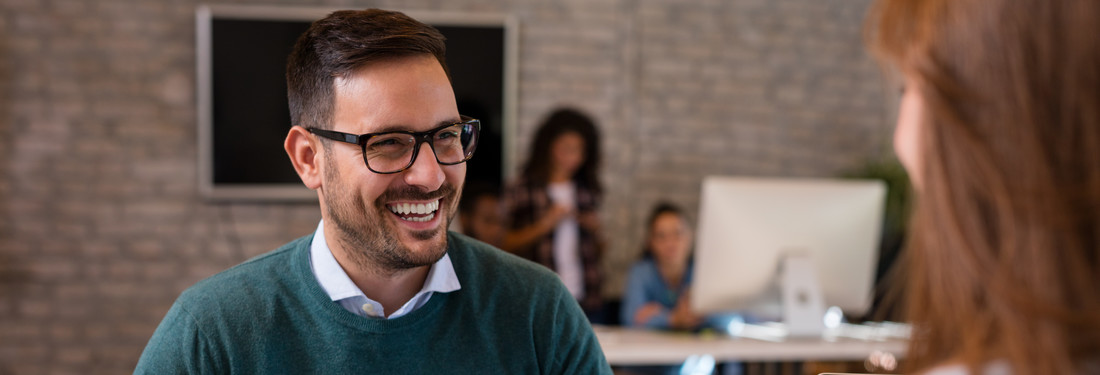The importance of mentoring in project management and how to make the most of it

Learning can be a tricky thing no matter what stage we’re at in our career, especially when we have to do this by ourselves. Project management is a profession that involves a lot of responsibility, pressure and deadlines. You have to get a lot done, whether it’s decision making, team management or presentations, a project professional is busy (if not frantic). This is why it’s so important to make sure you’ve got the right people around you for support and guidance – here’s where mentoring can help. We spoke to two project professionals about their experiences in mentoring and how it can benefit everyone; from creating a better place for learning to helping the project profession deliver better.
Mentoring is a must
“Mentoring is vital to the project profession,” says Jaspal Kaur-Griffin, portfolio management professional at Bar Standards Board who holds being a mentee and a mentor close to her heart. “I never had a mentor when I first started as a project manager which meant I had to discover how everything worked myself and had no one to turn to. This was quite a painful process at times and I vowed that if I ever had a chance to help someone out I would.”
Learning from others “is an excellent way to widen our knowledge and get a judgement-free perspective of how various situations can be approached. It creates a safe, non-judgemental place for a mentee to get advice and support from their mentor and help them develop a plan of action going forward,” she adds.
Ewelina Kruk, programme manager and associate director for Incendium Consulting, agrees that mentoring is a valuable relationship for project professionals since it helps us find better solutions: “because what we do is so unique and complex, mentoring programmes can help translate the best practice into life, maturing the knowledge and elevating the profession.”
You can start now
Mentoring isn’t something that’s only suitable for certain people in certain roles. Kruk shares that being a mentor or mentee can happen at any stage in life and your career: “I am always a mentee and aim to support whoever needs assistance, and I expect this to be a trend for life. The pendulum moves from the left to right of what you need and can provide as anyone's career progresses. Absolutely can you be a mentor or mentee, but it changes and can take on many forms.”
Kaur-Griffin shares this view, highlighting that “there will always be those with different perspectives to ours and by knowing these and possibly taking them on board, there is a greater potential for us to create a more inclusive environment. This then ultimately serves everyone – it leads us to deliver projects with varying diversity factored in.” She also adds how this is also a risk mitigation strategy against project failure, “there is always more to learn and investing in your professional development in this manner, whatever stage you’re at, gives you the opportunity to become more well-rounded as a project professionals and better at your job.”
Here are some quick tips if you’re interested in becoming a mentor or a mentee:
It can take any shape. “Don’t assume that you need to reach a certain level of wisdom to share experiences. It's all about having a conversation, supporting each other if there are challenges, and simply being a sounding board,” shares Kruk.
Know what your goals are. If you’re a mentee, it’s vital to “start with an end in mind of knowing exactly what it is you want help or guidance on,” Kaur-Griffin explains. “A mentoring relationship should be SMART because it helps ensure that mentoring sessions are focused on solving a key issue at hand.” It also means that sessions can run effectively and come to a conclusion, preventing an indefinite time strain on mentors and mentees.
Ask questions and share answers with context. “Through mentoring, we can get an answer to a problem which is a combination of knowledge and experience that wouldn’t be accessible with the same ease anywhere else” explains Kruk. “As a mentee, I can put forward my question within its context to get specific and helpful advice. As we know, each project is a unique undertaking so context is everything.”
Don’t be nervous. As a mentor, especially if it’s your first time, can be nerve-wracking and “there may very well be situations where you don’t know all the answers,” reassures Kaur-Griffin, “but your role is not to provide all the answers, rather to guide the mentee on how best to explore a problem, for example different ways of thinking or by engaging with different stakeholders. This means the mentee can create their own solutions to their identified problems. It becomes a great way to both empower your mentee and have your mentee take ownership of solving their problem themselves.”
You may also be interested in:


0 comments
Log in to post a comment, or create an account if you don't have one already.